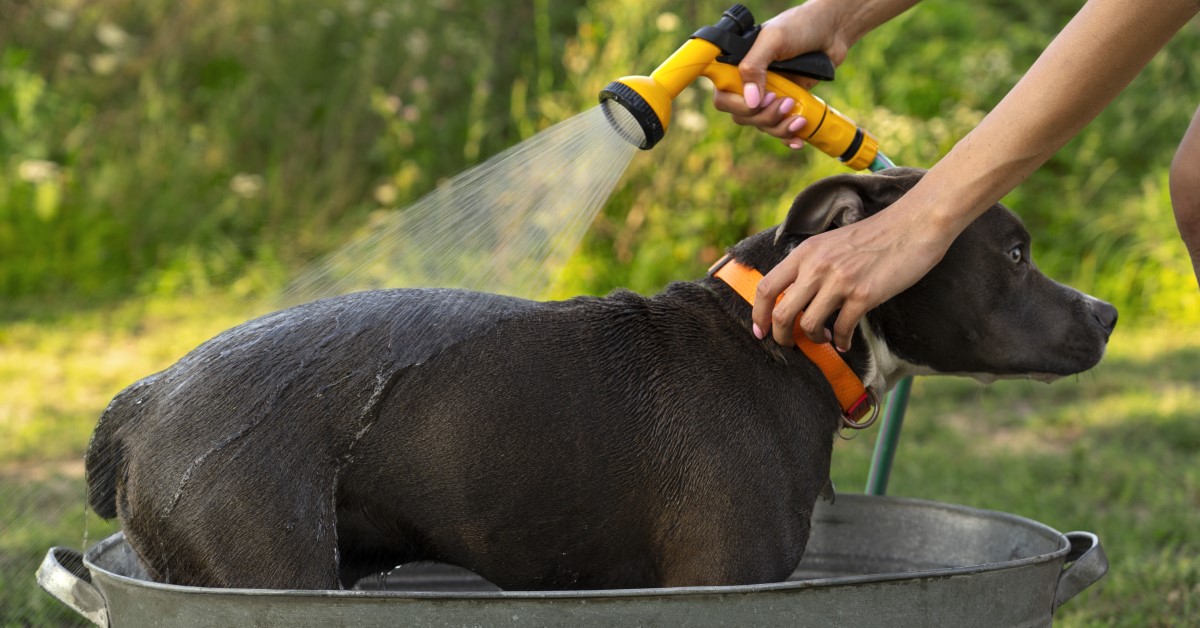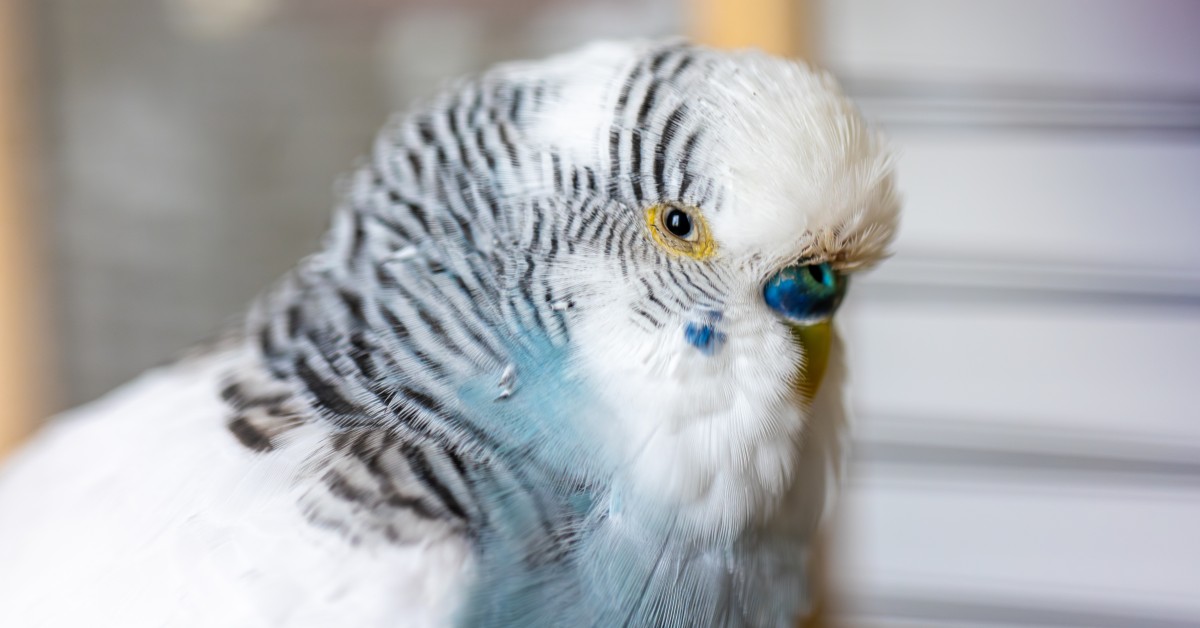Cleaning Skunk Smell Off Dogs
Get offensive skunk smell off dogs with safe and effective cleaning solutions.

It's happened to most dog owners at one time or another. Your dog is roaming the yard when all of a sudden, he encounters a skunk. Easily startled, the skunk releases its signature odor. Your poor pet is left with a pungent aroma that doesn’t go away with just soap and water. What do you do?
Cleaning skunk smell off dogs requires a special mixture of cleaning solutions and a lot of patience. Let’s dive into what exactly is in skunk spray and how to remove it from your pet.
What Exactly Is Skunk Spray?
If you’ve ever been around a skunk, you know that they tend to spray when they feel threatened. However, they don’t want to spray. Spraying is usually done as a last resort because it can take up to a week to restore their supply, which makes them vulnerable to predators.
Skunk spray consists of organic sulfur-containing thiols. This smelly liquid is stored in glands just outside the anus, which is why skunks must lift their tails to spray. While the release may seem undirected, each gland actually has a nipple-like protrusion that can be aimed at intruders.
Why Is It So Hard to Get Rid Of?
If your pet’s been skunked, you’ll often find that soap and water isn’t enough to eliminate the stench. This is because the liquid contains oils that can reactivate the odor when they interact with water. In addition, soap is not always enough to break down the oils stuck to the fur and skin, causing the smell to linger.
How Can I Get Remove Skunk Smell?
While there are commercially-made skunk smell removers, it’s easy to make your own cleaning solution at home. In an open container, combine the following ingredients to make your own DIY skunk smell remover:
- 1 tsp. liquid soap
- 1 cup baking soda
- 1 quart 3% hydrogen peroxide
Mix these ingredients together and use it to bathe your pet. Gently rub the solution into your pet’s coat and skin and allow it to sit for 5 to 10 minutes before rinsing well.
Next, bathe your dog with a regular dog shampoo or a de-skunk shampoo to remove any residual cleaning solutions and to help your dog smell clean. Rinse and towel-dry your pet.
Depending on how your pet was skunked, your dog may have spray in his eyes. Do they appear red or irritated? If so, flush them with cool water immediately. Alternatively, you can use a pet-safe veterinary eyewash. This type of product is good to have on hand if you live somewhere skunks are common.
How Long Does Skunk Smell Last?
Skunk smell can linger on your pet for up to three weeks on average. It is even more likely to stick around if you allow the spray to dry on the skin and coat as it creates a bond that’s difficult to remove. Be sure to act quickly to prevent lingering odors.
How Can I Prevent Skunking?
While it’s not always possible to prevent your dog from getting skunked, you can reduce the odds of it happening. Consider these tips:
1. Remove Potential Food Sources
Skunks are more likely to rummage around your property if you have food accessible. This includes fallen fruit from trees. Place tight fitting lids on trash cans and always bring your pet’s food dishes indoors.
2. Leave Outdoor Lights On
As nocturnal animals, skunks are typically seen during the night or on particularly overcast days. You can deter them from entering your yard by installing outdoor lights. If you want to keep your electrical costs low, use outdoor lights that only turn on when they sense motion.
3. Create a Skunk-Free Environment
Placing deterrents around your property can help keep skunks away. Throughout your property, place citrus peels, mothballs, and ammonia-soaked rags. Don’t use deterrents that could be dangerous to your pets.
4. Supervise Your Pet While Outdoors
Even well-behaved dogs can wreak havoc if they’re not properly supervised while outdoors. It’s important to keep an eye on your dog in the yard, especially at night. If you take your pet hiking or out for evening walks, keep them on a leash and away from wild animals.
5. Prevent Skunks from Building Dens
Skunks tend to build dens in areas where there is food, water, and shelter. This could be under porches, in open garages, in elevated sheds, or hidden within wood piles. Have you seen baby skunks? If they stick around long enough, skunks will breed on your property, usually around May, June, or July. Keep areas closed off that could serve as a den for wildlife.
Addressing Skunk Spray on Dogs
The last thing that pet owners want to deal with is skunk spray on their dog. Unfortunately, these things do happen. If your pet has gotten sprayed by a skunk, don’t panic. While it can take time and effort to completely remove the pungent odor, your dog will likely recover without any lasting effects.
There are some circumstances in which you’ll want to contact your vet. If your pet gets sprayed directly in the eyes, it could cause temporary blindness, swelling, redness, and potential damage to the cornea. Inhaling the spray can also result in respiratory irritation, and side effects like drooling, nausea, and vomiting. Closely monitor your pet for 1 to 3 days after exposure, and take them to the vet is conditions worsen or do not improve.
Ready to start saving money on pet wellness care?
Then take a look at Mint Wellness, the pet wellness plan that provides fast reimbursement on routine pet care. Save on vaccinations, wellness exams, preventatives, dental, and more!
Learn More


